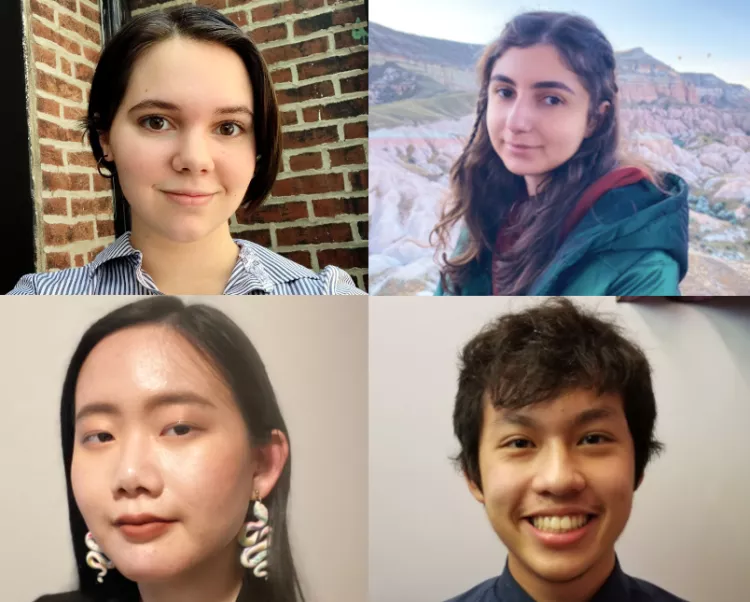Four Students Named Stanford University Innovation Fellows

Clockwise from left: Sofia Frumkin ’23, Ipeknaz Icten ’24, Jackie Le ’24, and Shirley Liu ’22
Four Swarthmore students have been named Stanford University Innovation Fellows (UIF), an honor earned through six weeks of intensive training designed to fuel campus leadership, innovation, and entrepreneurship.
Sofia Frumkin ’23, a political science major from Chicago, Ill.; Ipeknaz Icten ’24, of Turkey; Jackie Le ’24, of San Diego, Calif.; and Shirley Liu ’22, a Japanese language and literature special major from China, are working as design interns through the Center for Innovation and Leadership (CIL).
This is the fifth consecutive year that Swarthmore has had students named as fellows in the program.
Increasing awareness of campus innovation centers that might “go unnoticed and unused” was among this year's fellows' collective goals. Liu said they hoped to “bridge the knowledge gap between class years, especially due to the pandemic.” Individual projects look at challenges Swarthmore students face on campus, while searching for jobs, and after graduation.
Frumkin and Le both said that online learning and social distancing had impacted their Swarthmore experiences on campus life post-COVID-19.
Frumkin referenced the lingering effects of the pandemic year on sophomore students adjusting to campus life in person. She suggested a virtual game, OurSwat, to help students “adapt to campus culture” by including practical information about locations and opportunities on campus, and chat rooms for students to connect with and learn from each other.
Le imagined a liberal arts consortium through which students could “pool resources to assist each other” with academic and mental health concerns. Swarthmore offers students support, but students still struggle to “navigate their way to resources … and create helpful ones [for themselves].” One approach would be to offer liberal arts students a say in the development of on-campus programs.
Liu proposed a new and engaging format for alumni networking: a digital map to visualize alumni, their companies, and other relevant information. This system would help students find and reach out to alumni in their fields.
The transition from college to the working world also interested Icten, who hoped to help students in technical majors prepare for “concepts actually in use within the industry of interest.” She proposed a hybrid computer science course to blend theoretical and technical training and matching Swarthmore students with professional mentors.
The UIF and CIL training programs have helped the Swarthmore students to shape their goals as design interns. Le emphasized “human-centered design,” ensuring that projects address students’ needs. Liu said she believes in breaking away from standard practices when a new idea arises but stressed the importance of “think[ing] through other people’s perspectives.”



